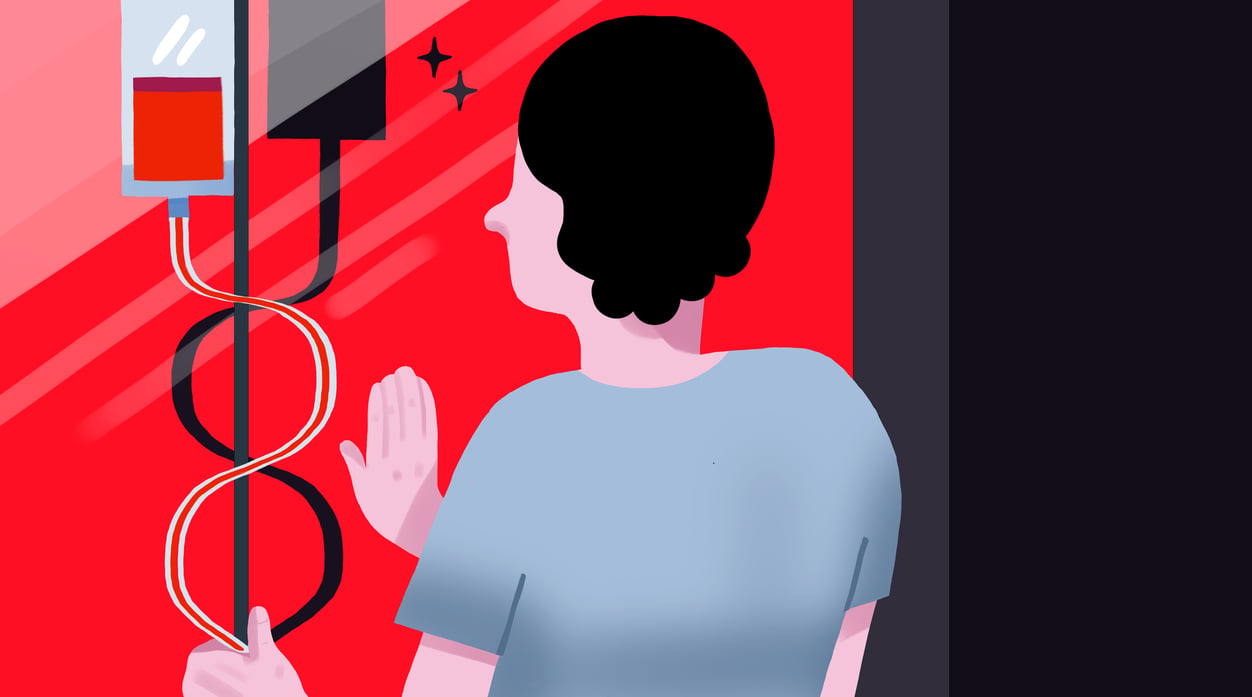leftCloser Look
When sky-high gene therapy prices make health systems in Europe balk, patients can be left behind
 Eros Dervisji for STAT
Eros Dervisji for STAT
Stella Pelteki was born with beta thalassemia, a disorder that inhibits oxygen's flow through the blood and requires frequent blood transfusions. When she heard about Bluebird Bio's gene therapy Zynteglo, which was likened to a cure and won European approval in 2019, her hopes soared. "I had been waiting 18 years — imagine how I felt," Pelteki, now 32 and splitting her time between Germany and Greece, told STAT's Europe correspondent Andrew Joseph. But after Bluebird halted talks with Germany over its seven-figure pricing, the company left Europe, and left Pelteki out of luck.
When a company promoting an expensive, possibly life-changing treatment collides with a cost-conscious, skeptical national health system, it can crush patients' hopes. Bluebird's experience brings to mind difficult negotiations between Vertex and the U.K. over its cystic fibrosis drugs, but Novartis had an easier path with Zolgensma. People wonder what will happen to the next product, said Androulla Eleftheriou of the Thalassaemia International Federation. "Will it have the same fate?" Read more.
mental health
Use of mental health services for kids jumped since the pandemic began, with telehealth still strong
The pandemic placed extraordinary pressure on our mental health, especially in its earliest months and for children. Telehealth filled some lockdown gaps in mental health services, and it still plays a significant role, a new RAND study in JAMA Network Open says. Looking at visits and spending for pediatric mental health services covered by families' employer-provided insurance from January 2019 through August 2022, the analysis found in-person services for kids and adolescents fell 42% in 2020, while telehealth services surged 30-fold for such diagnoses as anxiety disorders, ADHD, and major depressive disorder.
By August 2022, in-person mental health services rebounded to 75% of pre-pandemic levels, but telehealth was still 23 times higher. All told, use of mental health services is 22% higher than before the pandemic. While children covered by commercial insurance may differ from those with other kinds of coverage, the authors say telehealth care for kids' mental health needs continues to fill an important gap.
health
Sugary drink consumption varies with where you live
Sugar-sweetened beverages are bad for our health, linked to conditions ranging from obesity and cardiovascular disease to cavities in our teeth. Medical advice warns against these drinks and some countries have imposed taxes on them, cutting sales especially for people with lower income. But a new study in Nature Communications reports that around the world, overall consumption still rose at least 16% since 1990, with wide variations depending on where you live.
The Global Dietary Database, which tracks soft drinks, energy drinks, fruit juices, punch, lemonade, and aguas frescas containing more than 50 calories per serving, found that overall consumption ranged from 0.7 servings per week in South Asia to 7.8 servings per week in Latin America and the Caribbean. Slicing the data more closely, intake was higher in males than females, and in younger than older people; the highest intake was among urban, highly educated adults in Sub-Saharan Africa (12.4 servings per week).
The First Opinion podcast is back for a new season. First Opinion editor Torie Bosch talks with physicians Alison Block and Nikki Zite about the frustrating and heartbreaking consequences of living in a post-Roe America for providers, trainees, and patients. Listen here.


No comments